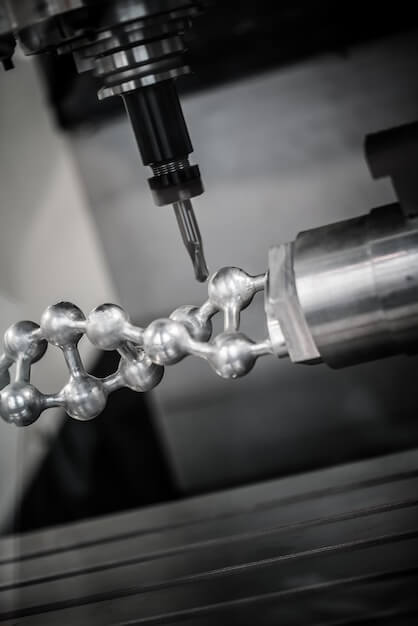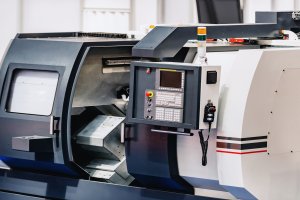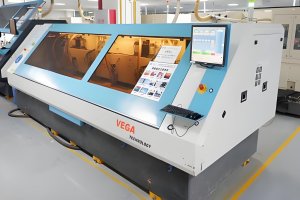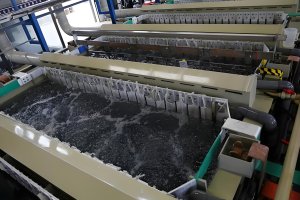CNC (Computer Numerical Control) machining stands as a cornerstone in the production of aerospace components, where its application spells the difference between success and catastrophic failure. In an industry that demands absolute precision, CNC machining provides the ability to produce parts with extremely tight tolerances, often down to micrometer-level accuracy. This is not just beneficial but essential for components that must withstand extreme forces and temperatures while maintaining strict conformity to design specifications. The significance of this technology in aerospace cannot be understated; it facilitates the creation of complex geometries that are crucial for aerodynamics, structural integrity, and the overall performance of aircraft and spacecraft.
Fundamentals of CNC Machining Processes
At the heart of aerospace manufacturing lies Computer Numerical Control (CNC) technology, a cornerstone in the production of intricate and high-tolerance parts. CNC machinery encompasses a spectrum ranging from mills, lathes, to grinders and routers, each machine specialized for tasks whether it’s sculpting a turbine blade or perfecting the surface on airframes. These systems operate under the guidance of CAD/CAM software which converts complex designs into precise instructions that control the movement and actions of the tools. By virtue of this integrated approach, components boasting exact specifications are realized, critical within an industry where every micron may count towards ensuring flight safety and performance.
Materials Used in Aerospace CNC Machining
The selection of materials for aerospace CNC machining is critical, with each material offering distinct advantages tailored to specific aviation demands. Aluminum alloys are prevalently used due to their lightweight and robustness, significant for enhancing fuel efficiency without compromising aircraft performance. Titanium is another favored choice, especially valued in high-temperature zones of the aircraft for its superior strength-to-weight ratio and corrosion resistance. Composite materials, such as carbon fiber-reinforced polymers, offer exceptional weight savings coupled with strong mechanical properties, which help increase payload capacity while reducing fuel burn rates. Ultimately, choosing the right material optimizes safety, performance, and cost-efficiency, ensuring that airborne vehicles meet stringent industry standards and withstand varying environmental challenges.
Precision Engineering Challenges in Aerospace
In the realm of aerospace CNC machining, engineers face unique complexities when designing parts that must conform to stringent industry standards and tolerances. Every component is expected to fit and function perfectly within assemblies where the margin for error is close to non-existent. To complicate matters further, managing thermal expansion and contraction during production poses a substantial challenge; different materials may react dissimilarly under changing temperatures, potentially warping or distorting critical components. For example, a precision-machined turbine blade requires exacting dimensional accuracy, as even microscopic deviations can lead to performance issues or failure when subjected to the extreme conditions of flight.
Innovations in Aerospace CNC Machining
Recent advancements in the realm of CNC machining equipment have ushered in a new era for aerospace engineering, marked by notable leaps in precision, efficiency, and cost-effectiveness. A prime example is the integration of multi-axis machining technology that allows components to be machined with higher accuracy from several angles in a single setup, reducing turnaround times and bolstering overall productivity. Innovations like real-time monitoring and adaptive control systems are also pivotal; they optimize cutting conditions during operations for enhanced performance, mitigating tool wear and material waste. This arises not only from a desire to push the boundaries of aeronautical capabilities but also from the need to remain competitive in an industry where even marginal improvements can lead to substantial savings and superior flight characteristics.
Quality Control in Aerospace CNC Machining
In the aerospace industry, where failure can often lead to catastrophic consequences, the importance of rigorous quality control measures cannot be overstated. Each component machined for aircraft must meet critical precision standards. Techniques like coordinate-measuring machine (CMM) inspections and laser scanning are applied to meticulously verify part dimensions and geometries against stringent specifications. Additionally, comprehensive certification processes such as AS9100 ensure that manufacturers maintain exhaustive quality management systems. For instance, a turbine blade’s profile may undergo digital imaging analysis to confirm its conformance to design models, underscoring how advanced inspection procedures play a pivotal role in aviation safety.
The Future of Aerospace CNC Machining
As aerospace manufacturing sails towards the future, an undercurrent of emerging trends is reshaping how we think about CNC machining. Automation and artificial intelligence (AI) are pivotal forces in this transformation, offering potential for unparalleled precision and production efficiency. For instance, AI-driven predictive maintenance can forecast machine wear and tear, minimizing downtime before it impacts production lines. Meanwhile, automation streamlines workflows, from raw material handling to finished component inspection, freeing human expertise for more complex tasks. However, these advancements necessitate a forward-thinking workforce—one that’s prepared through education and training programs for evolving roles in aerospace CNC technologies. Embracing such innovations may well catapult the industry into new heights of reliability and performance, with cutting-edge aircraft designs becoming evermore attainable.
Other Articles You Might Enjoy
- The Role of Prototype Machining in Accelerating Product Development
Introduction: The Importance and Definition of Prototype Machining Prototype machining is a critical element advancing product development. It involves the technique of manufacturing an early model or sample, known as…
- Elevating Precision Standards through Chamfer in CNC Machining
1. Introduction: The Pursuit of Unparalleled Precision In the realm of CNC machining, precision is paramount. This section introduces the article by exploring the significance of precision in manufacturing and…
- Precision Prowess: Unveiling the Advantages of China CNC Machining
1. Introduction: The Role of Precision in Manufacturing Excellence In this introductory section, we delve into the critical role that precision plays in manufacturing and set the stage for an…






